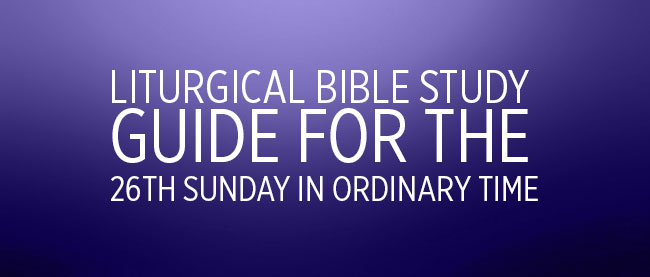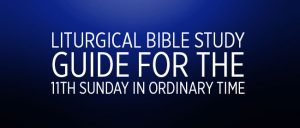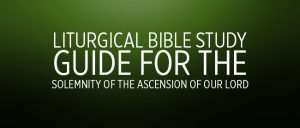1st Reading – Ezekiel 18:25-28
The name “Ezekiel” means “may El (God) strengthen.” He grew up in a priestly family, in Jerusalem. He was familiar with the Temple, and must have known Jeremiah.
During the second deportation to Babylon in 597 B.C., he was taken with others to Tel-Abib (near Nippur). He was married and had his own house, but his wife died about 587, some five years after the beginning of his prophetic mission. His ministry covered the period of 592 to 571 B.C. He never returned to Jerusalem except in visions.
The book of Ezekiel falls into three sections: Chapters 1 through 24 contain his call and prophecies of doom against Judah and Jerusalem. These were given prior to 586 when the Temple was destroyed. Chapters 25 through 32 are oracles against foreign nations, arranged, with the exception of Egypt, in geographical and chronological order. Chapters 33 through 48 contain prophecies of restoration.
In our reading today, which predates the destruction of the Temple, Ezekiel while lamenting Judah’s abandonment of the covenant as a nation, points out that each person is responsible for himself and his actions.
2nd Reading – Philippians 2:1-11
Last week we began our study of Saint Paul’s letter to the Philippians. In that reading, we heard Saint Paul describe his own situation. After this reflection on his situation, we now hear Paul exhort the Philippians to steadfastness, harmony, humility, and obedient selflessness. In their witness to Christ they should strive to conform themselves to
Him.
Gospel – Matthew 21:28-32
Last week we heard the parable of the workmen and the vineyard: a story of discipleship and the Jewish people. Jesus has taught that His followers will be first in the kingdom and that God’s first possession, Israel, will be the last. Jesus is now about one week away from His passion, death, and resurrection. As we join Him today, He has made
His triumphal entry into Jerusalem accompanied by shouts of “Blessed is he who comes in the name of the Lord!” “Hosanna in the highest!”.
He continues His teaching of the disciples, now in the Temple courts. While He is teaching, He has been approached by the chief priests and the elders (representatives of the Sanhedrin) who question where He gets His authority. He has replied that His authority comes from John’s baptism; then asks them if this authority is from heaven (in which case, why didn’t they believe Him) or from man (in which case, they will offend the many followers of John)? Those questioning Him refuse to answer so Jesus illustrates His point with a parable.





